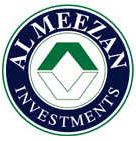| |
CONTINUED economic strength and sound macro management are prerequisites in ensuring the success of the Malaysian Islamic finance industry, said Kuwait Finance House (KFH) Malaysia chief economist & head (research) Baljeet Kaur Grewal.
She said Malaysia had already established itself as a key player in the global Islamic sphere, thanks to an environment of strengthening economic growth, underpinned by strong fundamentals.
However, there remained tremendous prospects for growth in the industry, which she said, would be of a vertical nature.
“The Malaysian emphasis now is on capacity building, investment in human capital development, enhancing financial soundness and compliance of Islamic financial institutions and enhancing syariah compliance and governance, among others,” she told StarBiz.
Baljeet said the local Islamic finance market and the Gulf Cooperative Council (GCC) Islamic market would have different yet complementary growth patterns.
Unlike Malaysia, Baljeet said, the GCC states would see more of a lateral expansion such as the establishment of new banks and companies and the introduction of new products.
“This is partly because of the vast liquidity in the market (GCC) which impacts directly on demand dynamics for financial products,” she said.
In five years, she expects to see increasing embedded capital within clusters of economies, which will jointly build a framework for an integrated Islamic finance industry.
Baljeet also noted that the next phase of global industrialisation could not be financed solely out of equity or government budgets.
Instead, there would be an increased reliance on debt markets for Sukuk and other capital market instruments.
“In this regard, Islamic finance is set to leverage its position because of its competitive pricing and now increasingly acceptable structures,” she said.
“Regulations will need to remain supportive of the development of Islamic markets.”
Locally, she believes that sound regulation in the Islamic markets has been key to the industry's growth.
She said that the challenge, moving forward, would be to maintain this advantage while advocating risk management policies, corporate governance, transparency and market conduct within the syariah framework.
To maintain the growth of the Islamic finance industry in Malaysia, continuous research on markets, products and investments was needed, she said.
On the level of capitalisation of most Islamic banks, she describes it as “still diminutive” compared with global players. “We need to address this as well,” she said.
Meanwhile, in line with the rapid growth of the Islamic finance industry, the KFH group recently launched its research arm, KFH Research, in Dubai.
”The value of an independent point of view to give investors a competitive advantage is crucial, more so in Islamic markets,” Baljeet said.
“Based on this premise, KFH has established the world's first Islamic economics and investment research arm,” she added.
The outfit's research activities, according to Baljeet, span global markets and economies, and aim to provide in-depth macro and trend analysis and enable knowledge sharing.
“Based in Malaysia, against a thriving Islamic capital market, our research group acts as a conduit linking the Middle East and Asia, two key economic regions which will drive growth into the next decade,” she said.
Baljeet also said plans were afoot to set up research bases more aggressively across the Middle East, Asia and the greater Middle East and North African regions.
Meanwhile, Bank Negara governor Tan Sri Dr Zeti Akhtar Aziz, in a speech delivered by Bank Negara deputy governor Datuk Mohd Razif Abd Kadir during the launch of the research outfit, said that in the recent five years, there had been a rapid evolution and expansion of the global Islamic financial services industry.
“Islamic finance has now been accepted as a viable and competitive mode of financial intermediation, not only in Muslim countries but also beyond the Muslim world,” she said.
Zeti said the overall Islamic financial system's growing role in mobilising and channelling funds to productive investment activities across borders brought important benefits to the global economy.
“Building stronger financial markets and greater intermediation through knowledge sharing, especially forms an important part of this process to facilitate greater international and investment flows,” she said.
KFH, listed on the Kuwait Stock Exchange, enjoys a strong presence and reputation within the Middle East as one of the pioneers in Islamic banking and finance.
|








